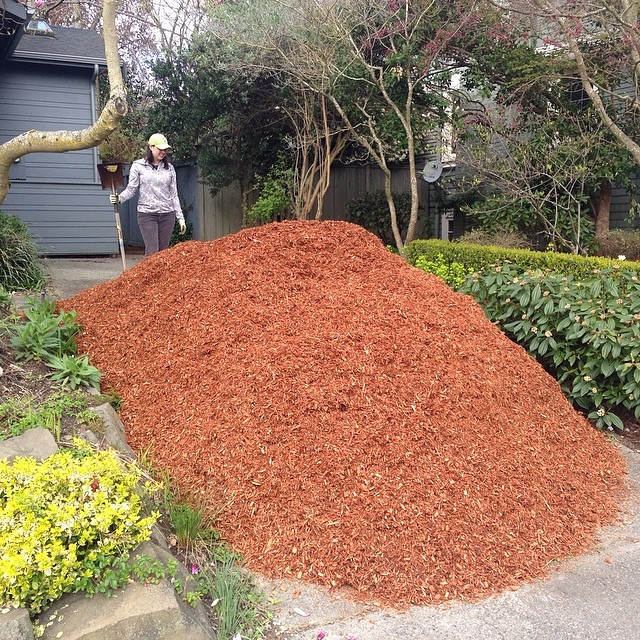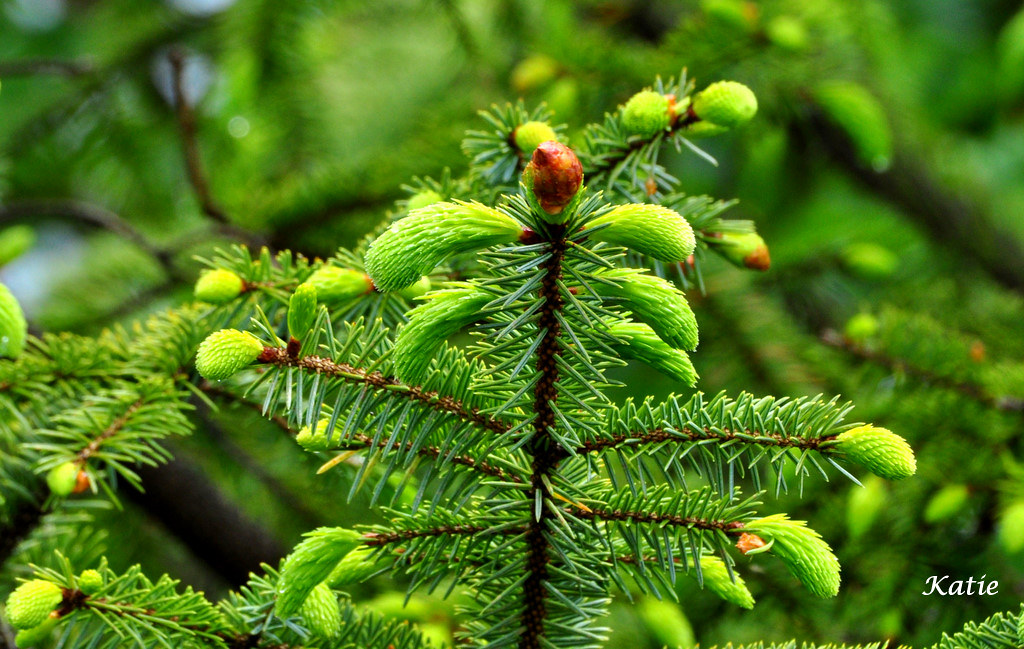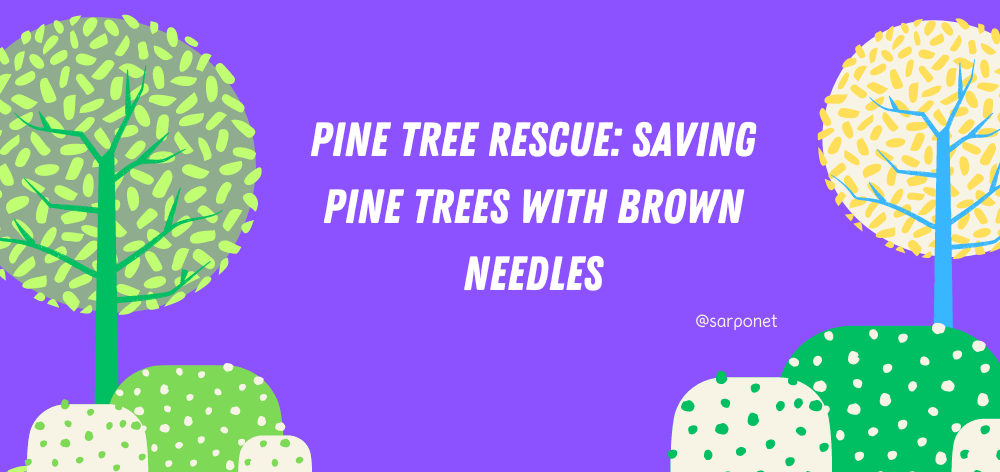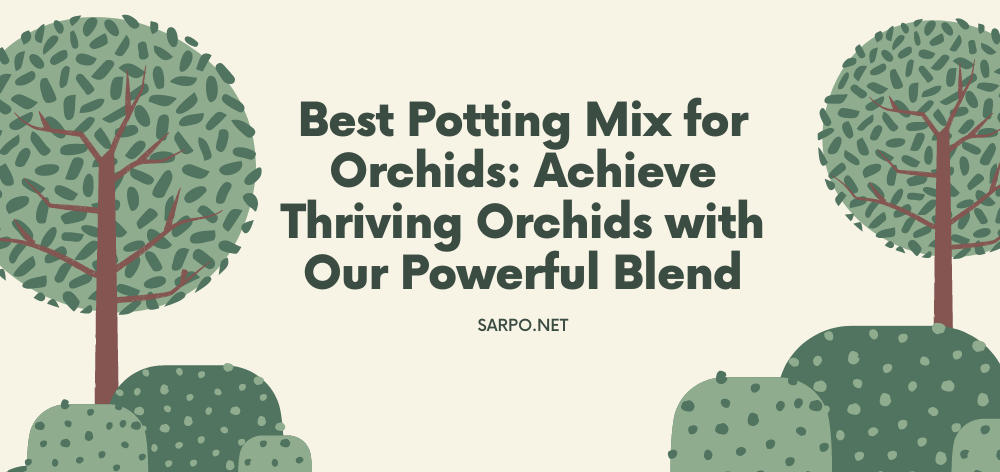Cedar vs. Cypress Mulch as a Bug Repellent
There are a few different types of wood mulch that can be used for gardens and landscaping. Cedar and cypress mulch are two of the most popular options. Both have their own unique benefits and drawbacks when it comes to repelling bugs.
Here is a breakdown of how each one performs as a bug repellent. Cedar mulch is made from cedar bark or cedarwood shavings. It has a strong, fresh scent that is very effective at keeping bugs away.
However, cedar mulch can be expensive and it will need to be replaced more often than other types of mulch because it breaks down quickly. Cypress mulch is made from the bark of cypress trees. It has a natural chemical called cyprodinil that repels many common garden pests, including aphids, whiteflies, and spider mites.
Cypress mulch is also less likely to float away in heavy rains than some other types of mulch can.
Cedar and cypress mulches are both excellent choices for use as a bug repellent. Cedar mulch repels bugs because of its natural oils, while cypress mulch contains an ingredient called pyrethrin which is a known insecticide. Cypress mulch is also effective at repelling termites.
Cedar Mulch
Cedar mulch is a type of mulch made from cedar trees. It is dark brown in color and has a strong, pleasant smell. Cedar mulch is popular because it is durable and lasts a long time without decomposing.
It also helps to repel insects, making it ideal for use around gardens.
Cypress Mulch vs Cedar Mulch – Which One Is Better
Does Cedar Mulch Attract Termites
Cedar mulch is one of the most popular types of mulch used in landscaping. It has a pleasant smell and is effective at suppressing weeds. But does cedar mulch attract termites?
Termites are attracted to wood, so it stands to reason that they would be attracted to cedar mulch. However, there is no evidence that cedar mulch is any more attractive to termites than other types of wood mulch. In fact, termites are more likely to infest trees and other wooden structures near your home than they are to infest cedar mulch.
If you’re concerned about attracting termites, there are a few things you can do to reduce the risk. First, avoid using treated wood for Mulching purposes. Second, keep your Mulch layer thin – no more than three inches deep.
Third, don’t allow Mulch to touch the foundation of your home or any other wooden structures on your property. By following these simple guidelines, you can help prevent termites from taking up residence in your yard!
Does Cedar Mulch Repel Mosquitoes
If you’re looking for a natural way to keep mosquitoes at bay, cedar mulch may be the answer. Cedar oil is a potent mosquito repellent, and cedar mulch releases this oil as it decomposes. This means that a layer of cedar mulch around your property can help keep mosquitoes away.
Cedar oil works by masking the scents that attract mosquitoes, making it more difficult for them to find you. It also disrupts their ability to fly, which makes it harder for them to reach you in the first place. And since cedar oil is a natural substance, it’s safe to use around children and pets.
Of course, no mosquito repellent is 100% effective, so you’ll still want to take other precautions against these pesky insects. But if you’re looking for an all-natural way to deter mosquitoes, cedar mulch is definitely worth considering.
Does Cedar Mulch Attract Bugs
Cedar mulch is a popular type of mulch used in landscaping. It is attractive and has a pleasant smell. However, some people worry that cedar mulch might attract bugs.
There is no evidence that cedar mulch attracts more bugs than other types of mulch. In fact, cedar may even repel some insects because of its natural oils. If you are concerned about attracting bugs, you can take some simple precautions, such as:
-Avoid using too much mulch around your home. Mulch provides a great habitat for insects and excess mulch can attract them to your home.
-Keep your mulch dry.
Wet conditions are ideal for many insects, so make sure to keep your cedar mulch as dry as possible.
-Remove any leaves or debris from your yard on a regular basis.
Cedar Mulch near Me
If you’re looking for cedar mulch near you, there are a few places you can check. Your local garden center or nursery is a good place to start, as they may carry cedar mulch in stock. You can also check online retailers or home improvement stores.
Cedar mulch has a number of benefits for your garden. It helps to suppress weeds, retains moisture, and adds nutrients to the soil as it breaks down. Cedar mulch also has a pleasant aroma and can help deter pests from your garden.
Cedar Vs Cypress Vs Hardwood Mulch
When it comes to mulch, there are many different types to choose from. Cedar, cypress, and hardwood mulches are all popular choices, but which one is the best?
Here’s a look at the pros and cons of each type of mulch to help you decide:
Cedar Mulch:
- Pros: Cedar mulch is very attractive and has a pleasant smell. It also repels insects and lasts a long time without needing to be replaced.
- Cons: Cedar mulch can be expensive. It also fades in color over time and may discolor concrete or other surfaces if it gets wet.
Cypress Mulch:
- Pros: Cypress mulch is also attractive and has a pleasant smell. Like cedar, it repels insects and lasts a long time without needing to be replaced. Additionally, it doesn’t fade in color like cedar does.
- Cons: Cypress mulch can be more expensive than cedar. It may also discolor concrete or other surfaces if it gets wet. Additionally, some people find the smell of cypress overwhelming.
Cypress Mulch Bug Resistant
If you’re looking for a bug-resistant mulch, cypress mulch is a great option. This type of mulch is made from the bark of cypress trees, and it’s known for being effective at repelling insects. Cypress mulch also has a pleasant aroma and can help to suppress weeds.
Does Cedar Mulch Repel Bugs
Cedar mulch is often used in landscaping because it is attractive and has a pleasant smell. But did you know that cedar mulch can also help to repel bugs?
There are a few reasons why cedar mulch is effective at repelling bugs.
First, the scent of cedar is unpleasant to many insects and will keep them away from your garden. Additionally, the oil in cedarwood is toxic to some insects and will kill them if they try to eat it. Overall, using cedar mulch in your landscaping can help to create a bug-free environment!

Credit: homeguides.sfgate.com
What Mulch is Best to Keep Bugs Away?
There are a variety of mulches that can be effective in keeping bugs away. Some of the most popular options include cedar, cypress, and eucalyptus mulches. These mulches release natural oils that repel many common household pests, including ants, cockroaches, and spiders.
Mulches made from these materials can also help to deter other outdoor pests, such as mosquitoes and ticks.
What Insects Does Cypress Mulch Repel?
Cypress mulch is great for repelling insects! Some of the insects that it repels include ants, cockroaches, earwigs, and termites. Cypress mulch also helps to deter other pests such as slugs and snails.
Does Cedar Mulch Keep Bugs Away?
Cedar mulch is a type of mulch made from cedar chips or shavings. It is dark brown in color and has a strong, woodsy smell. Cedar mulch is popular because it is thought to repel insects, including mosquitoes, ants, and termites.
In addition, cedar mulch lasts longer than other types of mulch, such as pine straw or cypress bark. Research on the insect-repelling properties of cedar mulch is limited. However, one study found that cedar chips did repel cockroaches (1).
The study found that German cockroaches avoided areas treated with cedar chips more than those treated with cypress chips or no chips at all. It’s not clear why this is the case, but it may be because of the smell of the cedar oil or the physical structure of the chips themselves. If you’re looking for a natural way to keep insects at bay, cedar mulch may be worth a try.
Just keep in mind that it won’t work against all bugs – only those that are repelled by the scent or physical structure of cedar.
What is Better Cypress Or Cedar Mulch?
There are a few key differences between cypress and cedar mulch that may help you decide which one is better for your needs. For one, cypress mulch is naturally resistant to rot and decay, making it a lasting choice for outdoor spaces. Cedar mulch, on the other hand, has natural oils that give it a distinct smell – some find this appealing, while others do not.
Cypress mulch also tends to be lighter in color than cedar mulch, so if you’re looking for a bright pop of color in your garden beds, cypress may be the way to go.
Frequently Asked Questions:
Is cedar or cypress better for mulch?
Cedar is generally better for mulch:
Cedar Mulch:
Aromatic: Cedar mulch has a pleasant, natural aroma that can help deter certain pests, like moths and ants.
Decay Resistance: Cedar mulch decomposes relatively slowly, meaning it will last longer in your garden.
Cypress Mulch:
Decay Resistance: Cypress mulch also decomposes slowly and lasts a long time.
Moisture Retention: It can help retain moisture in the soil.
What’s the best type of mulch?
The best type of mulch depends on your specific needs and preferences, but cedar, hardwood, and pine mulch are popular options.
What is the most common mulch?
Wood mulch, often made from shredded hardwood or pine, is the most common type of mulch.
Conclusion
Mulching your garden beds is a great way to keep weeds at bay and help your plants retain moisture. But did you know that certain types of mulch can also help repel pests? Cedar and cypress mulches are both effective at repelling bugs, but they work in different ways.
Cedar mulch releases natural oils that bugs find offensive. Cypress mulch contains compounds that are toxic to many insects. Both types of mulch will need to be replaced periodically, as the oils will dissipate over time.
Related Articles:
10 Best Small Evergreen Trees with Non Invasive Roots
 Dr Ahsanur Rahman, PHD
Dr Ahsanur Rahman, PHDPine Tree Rescue: Saving Pine Trees with Brown Needles
 Dr Ahsanur Rahman, PHD
Dr Ahsanur Rahman, PHD






